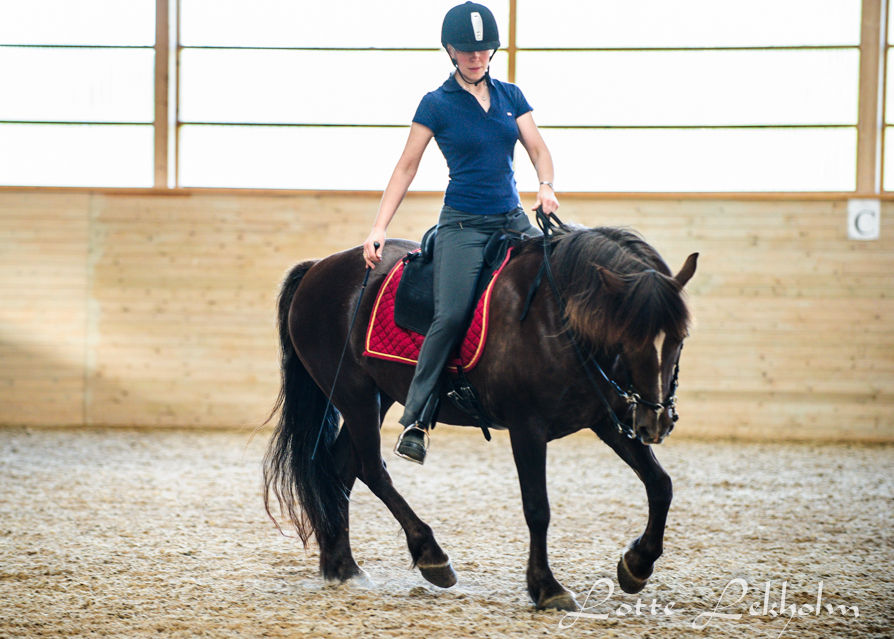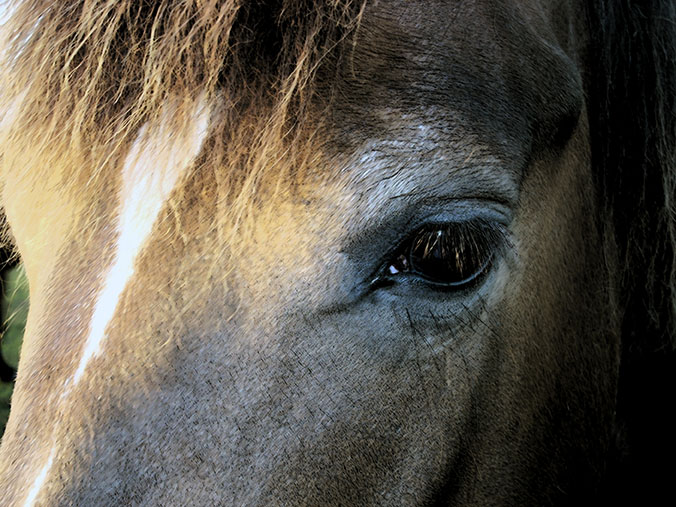I have been dancing the swing dance Lindy hop for about a year now, and the more I learn to dance Lindy hop the more I realize how it is the same thing as dancing with a horse, either you train it from the ground or when riding.
In the very beginning of my Lindy hop career it was all about foot work. How was I supposed to get my two left feet in the somewhat right position? I was stiff and movements were a bit awkward. I could not focus that much on my dance partner because I was very busy on my own. When you start working a horse it is the same. In my kind of horse training, the academic art of riding, we usually start working the horse from the ground, walking backwards on a circle. First you need to find out how to move those feet on a circle. Let me tell you how many quasi-circles I have made in my life, before developing eyes in my back! In addition to moving your own body on that (quasi)-circle you should bring along your horse and somehow try to make it follow your body. What do you do then? To make it a bit simpler, you practice those Lindy steps or walking backwards alone, without a partner.
Once you at least have a decent opinion on how to move your feet you can start focusing a bit more on your partner, whether two or four-legged. Then you start thinking on how to move your own body to move your partner in the desired direction or exercise. Neither a horse nor a dance follower enjoys being pushed or pulled by a strong and stiff arm, so you need to find out how to lead with your body. And if you do not lead, someone will have to. The horse takes over and starts pushing you, moving away from the circle, deciding the pace and tempo, or the dance follower will start leading by way of self-preservation.

In my Lindy hop I have finally started to understand that dancing is movement of the point of weight. This I have known for a long time when riding. I move my point of weight in the direction I want the horse to move. In the dance, when I focus more on moving my point of weight than moving my feet it becomes smoother and nicer, and I can keep my feet underneath my point of weight, that is keeping my balance and frame. If I dance and move my feet out of my frame I loose balance and me and my partner cannot use the energy created in the dance but I have to run after my partner. If the horse drops its legs out of the frame it gets stiff and loses its balance and either slows down or tries to run after the point of weight. And by the way, keeping the frame, adjusting my muscle tension to exactly what is needed, no more or less, not getting sloppy or tense, and engaging my whole body, I have to do both in riding and in dancing. I need to switch between relaxation and tension depending on the dance and the movements.
…dancing is movement of the point of weight
In Lindy hop I recently went back to do simple triple steps, one of the basic steps, and realized how much more there is to know about these steps than I ever knew. At first it was a bit disappointing, “I can´t even do triple steps”, but then I realized it is just as when I teach my academic art of riding students, “Now we peel yet another layer of the onion”. There are always more details to learn, to move into that next layer, but that does not mean everything we learnt up to now is rubbish. We just add another detail to get it even better.
With better basics you move your whole level of dancing to a higher level, whether dancing with a human or a horse.
I realized, in both dancing and horse training, you are never better than your basics. That does of course not mean you can´t dance or ride and enjoy yourself while learning, and by the way, you will never get perfection anyway, right? Being the scientist I am I just love to go into those little nitty-gritty details and work on the basics. It is the solid foundation upon which everything else is built. With better basics you move your whole level of dancing to a higher level, whether dancing with a human or a horse.
